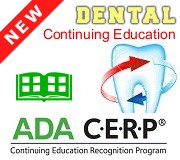Various Dental Proceduers not Covered by Medicare
- Hits: 5227
- 0 Comments
- Subscribe to updates
- Bookmark
In 2008 a lawsuit was filed against Medicare for its refusal to cover dental treatment associated with a number of medical conditions including Sj├ČgrenŌĆÖs disease. Recently in the U.S. District Court for the District of Arizona, on behalf of an additional three Medicare beneficiaries and the Center for Medicare Advocacy (CMA), the suit was amended to reflect these additional victims as it relates to MedicareŌĆÖs policy on dental care associated with medical treatment.
And it is about time that Medicare policy has been challenged.
Sj├ČgrenŌĆÖs disease as well as other medical conditions such as oral cancer can result in extensive morbidity affecting the jaws, salivary glands, and the dentition, either as a direct result of the disease itself or secondarily from medical/surgical management. Yet as one recent online article has pointed out, Medicare policy excludes coverage of important follow-up dental services which are not ŌĆ£incident to and an integral part ofŌĆÖ eligible medical careŌĆØ (Donna Domino, DrBicuspid, 2011). What this has meant historically is that Medicare routinely denies appropriate post medical dental management of these dentally compromised patients, and unfortunately, this additional dental treatment can represent a rather significant added expense born strictly by the patient.
As an example of the problems currently inherent in MedicareŌĆÖs policy, the article by Ms. Domino cites the case of one of the plaintiffs, a Ron Fournier, who is reported to have developed a tonsillar squamous cell carcinoma which metastasized to several neck nodes. Treated with chemotherapy and radiation, he experienced post-treatment morbidity associated with his salivary glands and ultimately problems with dental infection, caries, fractured teeth, and he had to have multiple dental extractions. However the Centers for Medicare and Medicaid Services (CMS) as well as the Medicare Appeals Council are said to have denied coverage for the extractions, citing as an excuse, that they are only covered for patients undergoing transplants, to prepare the jaw for radiation treatment for cancer, or in emergency treatment of injuries.
The attorney for the CMA, Sally Hart who filed the suit reports ŌĆ£we have argued that this is a misinterpretation of the Medicare statuteŌĆØ adding ŌĆ£we think that beneficiaries who require extensive dental services because of damage from Sj├ČgrenŌĆÖs syndrome as well as cancer radiation treatment and other conditions that destroy the production of saliva, should not fall within the exclusionŌĆØ.
Of course, as with any policy and medical condition and claim, issues are not simple or clear-cut. And the decision making process must rely on complexities that are often beyond the scope of the involved dentists and patients. One of the more serious issues is ŌĆśmoneyŌĆÖ as post-surgical dental treatment can be tremendously expensive. But the question is: should this be a determinant when appropriate complete management is an issue? Is not the quality of the patients life as important as survival?
As James Sciubba, DMD PhD, an oral pathologist who is vice president of another advocacy group for patients, ŌĆśSupport for People with Oral and Head and Neck Cancer, notes ŌĆ£CMS consistently denies this type (of dental) of coverage because of the exorbitant costs associated with often extensive dental treatmentsŌĆØ. In fact, in some instances, the post-medical dental treatment can be the most expensive component of the total cost of treatment. As Dr Sciubba says ŌĆ£thatŌĆÖs part of the problem and the Medicare folks certainly understand thatŌĆØ.
Nonetheless, it is the fact that patients may remain only partially treated because of the arbitrary distinction between ŌĆśdentalŌĆÖ and ŌĆśmedicalŌĆÖ management that rankles most Dentists in the U.S. The Medicare reimbursement problem has led to various ŌĆśalternative treatment strategiesŌĆÖ designed by attending clinicians to garner coverage of what should be otherwise considered ŌĆścompleteŌĆÖ management of the patient (including medical and dental treatment). For example, as the article points out, ŌĆ£if a patient is hospitalized for partial recession of the lower jaw, surgeons will take a piece of fibula with soft tissue from the leg, transfer it to the mandible, reattach it to arteries and veins, and wire it in place, Dr. Sciubba explained. Then an oral surgeon or prosthodontist places implants into the grafted boneŌĆØ at the time of the hospital procedure and these treatments will be covered.
However if it happens that an appropriate procedure such as an implant placement is performed on an outpatient basis (in a dental office) by a secondary or tertiary dental provider after the surgery it will likely be denied by Medicare. As the lawsuit claims, ŌĆ£medically related dental care to completion is usually not performed at the same time of surgical resection of the tumor and bony reconstruction and by the same provider for the underlying medical conditionŌĆØ and ŌĆ£this makes the Medicare requirement a ŌĆ£Catch-22ŌĆØ situation.
It is unfortunate that this very incorrect Medicare policy has also led to a lawsuit. But in the U.S. it often takes a lawsuit to open the eyes of officials associated with government policy before change can occur. Given this, it is suggested that more patients (and dentists) that feel harmed by MedicareŌĆÖs policy should enjoin the suit so that patients in the future with similar reimbursement problems can receive appropriate care and not be debilitated by partial treatment or bankrupted by the overall cost of treatment.
Submitted by Jeff Burgess DDS MSD, Editor in Chief






